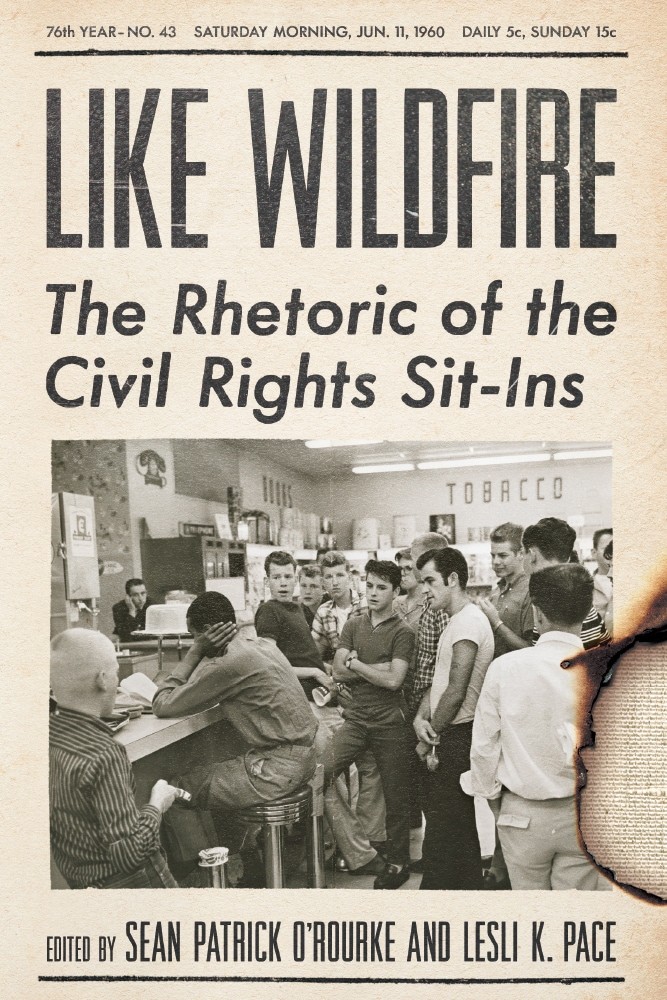
Professor Sean Patrick O’Rourke (Rhetoric and American Studies) published Like Wildfire: The Rhetoric of the Civil Rights Sit-Ins (Columbia: University of South Carolina Press, 2020), co-edited with Professor Lesli K. Pace of Southeast Missouri State. The book is a part of USC Press’s Rhetoric and Communication series.
The sit-ins of the American civil rights movement were extraordinary acts of dissent in an age marked by protest. By sitting in at “whites only” lunch counters, libraries, beaches, swimming pools, skating rinks, and churches, young African Americans and their allies put their lives on the line, fully aware that their actions would almost inevitably incite hateful, violent responses from entrenched and increasingly desperate white segregationists. And yet they did so in great numbers: most estimates suggest that in 1960 alone more than seventy thousand young people participated in sit-ins across the American South and more than three thousand were arrested. The simplicity and purity of the act of sitting in, coupled with the dignity and grace exhibited by participants, lent to the sit-in movement's sanctity and peaceful power.
In Like Wildfire, editors O'Rourke and Pace seek to clarify and analyze the power of civil rights sit-ins as rhetorical acts—persuasive campaigns designed to alter perceptions of apartheid social structures and to change the attitudes, laws, and policies that supported those structures. These cohesive essays from leading scholars offer a new appraisal of the origins, growth, and legacy of the sit-ins, which has gone largely ignored in scholarly literature. The authors examine different forms of sitting-in and the evolution of the rhetorical dynamics of sit-in protests, detailing the organizational strategies they employed and connecting them to later protests. By focusing on the persuasive power of demanding space, the contributors articulate the ways in which the protestors' battle for basic civil rights shaped social practices, laws, and the national dialogue. O'Rourke and Pace maintain that the legacies of the civil rights sit-ins have been many, complicated, and at times undervalued.
O’Rourke and Pace wrote the book’s introduction and three section introductions together, and O’Rourke and Professor Melody Lehn (Rhetoric and Women’s & Gender Studies) contributed chapters to the volume. Offering a rhetorical history of the Greenville, SC sit-ins, O’Rourke’s chapter charts the “prismatic” qualities of the Greenville protest and their rhetorical trajectory from an airport stand-in in January 1960 to the U.S. Supreme Court’s decision in Peterson v. Greenville (1963), which struck down “whites only” regulations and ordinances as violations of the 14th Amendment’s equal protection clause. Lehn wrote the lead chapter of Like Wildfire. In it she studies first lady Eleanor Roosevelt’s “sit-between” at the 1938 Southern Conference for Human Welfare held in Birmingham, Alabama. Lehn reveals the “liminal” aspects and strategies of ER’s silent but eloquent protest against Birmingham’s segregation regulations and practices.

